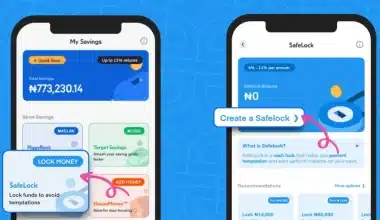In the world of business, there is always the nagging fear that you may provide excellent work for a customer who will never pay you. Even if it’s irritating, this situation doesn’t completely leave you without options: you can always try to reclaim the money that’s owed to you by filing a lawsuit against the other party. In this scenario, you will need the assistance of a lawyer who specializes in debt collection. Before going down this path, it is crucial to educate yourself about the type of attorney you will need, how to negotiate with a debt collection lawyer when you need to hire one, and the difference between hiring a debt collection attorney and an agency. Only then can you make an informed decision.
Who Is a Debt Collection Attorney?
An attorney specializing in debt collection is a legal professional who can advise clients on the development of legally sound strategies for the collection of debts from clients who have stopped making payments. In court, if your case goes to trial, they will often represent you as your lawyer and fill out and file all the necessary paperwork on your behalf.
Furthermore, attorneys that specialize in debt collection typically represent creditors rather than debtors. On both an operational and financial level, a debt collection agency can’t work well without the help of debt collection lawyers.
When money problems come up, anyone can hire a debt collection attorney to try to get back any money that is owed. Most of the time, attorneys are in a good position to figure out if it would be better to go to court or use credit counseling to ease the worries of both sides. They might argue for debt cancellation or a new repayment schedule in extreme situations.
What Is the Role of a Debt Collection Attorney?
For some clients, the best way to get past-due payments back is to hire a debt collection attorney. The following are the roles of an attorney who specializes in debt collection:
- It aids you in pursuing legal action if necessary to recoup client debts.
- If you have significant debt, owe money to a large corporation, or require additional legal assistance, here is the solution.
A debt collection attorney’s help is crucial when dealing with clients who refuse to pay what they owe.
It’s frustrating, but you can always go to court to try to get what’s really yours, so don’t give up! If you find yourself in this situation, you should call a debt collection law firm right away.
Before you hire a debt collection attorney, you should know what to expect and how they’re different from collection agencies. Consider the attorney’s fees, areas of practice, and track record of success if you require legal help with debt collection.
What Should You Not Do With a Debt Collector?
To urge people to pay back their debts, debt collectors often come across as abrupt, aggressive, and even frightening. This is a reputation that is sometimes well-deserved. Some debt collectors violate the federal Fair Debt Collection Practices Act (FDCPA), which prohibits these unpleasant and unjust practices. Here are things you should not do as a depth collector:
#1. Make an Arrest Warrant Threat
If you have debts, a collector cannot use coercion or false accusations to have them paid.
To begin, government organizations can’t get arrest warrants issued or have you locked up. More importantly, you will not go to jail for failing to pay an obligation such as a credit card, mortgage, auto loan, or medical payment.
However, if you don’t appear in court for a debt, the judge may issue an arrest warrant. If you don’t pay your debt court fine, taxes, or child support, you could go to jail.
#2. Make You A Public Shame
Collectors cannot use your reputation against you to get the money you allegedly owe.
Indeed, they are not even authorized to send you a postcard. They are forbidden from disclosing debtors’ identities. You, your spouse, and your lawyer are the only people they can talk to about it.
Debt collectors can talk to people other than the debtor to find out who they are. However, they are only allowed to ask the debtor for their address, home phone number, and place of work. Most likely, they will not make repeated attempts to get in touch with those individuals.
#3. To Go After You for the Money You Don’t Owe
Inaccuracies abound in the debt collection sector. A debt collector may go after the wrong person for payment or the right person for a debt that has already been paid if the paperwork is incomplete or faulty. Although not prevalent, this practice is against the law.
Review your credit reports if you have questions about a debt you’ve been asked to pay. Using a free credit report, you can acquire one for no cost every year.
Keep in mind that debt collectors can contact the deceased person’s heirs or executor to discuss debt repayment, but they are prohibited from making false claims about the debtor’s legal need to pay.
#4. Show Up at the Workplace
The FDCPA says that a debt collector can’t come to your place of work to ask you for money. It is against the law for a debt collector to show up at your place of employment. To put it another way, debt collectors are prohibited from visiting you at your place of employment.
Credit card companies or other debt collectors can call you at work, but they can’t tell you who they are. Debt collectors are required by law to stop calling you at work if you ask them to stop.
When Would You Need to Hire a Debt Collection Attorney?
A debt collection attorney may be necessary if you find yourself in any of the following predicaments:
#1. The Company You’re Helping Out Is Massive
Larger corporations can fend off attempts to force them to pay their bills since they have more resources. When looking for debts that corporations owe, it can be helpful to talk to a debt collection lawyer who knows how big businesses may use these tools.
#2. It’s Imperative That You Issue Demands by Writing
Let’s say you know you’ll have to go to court, but you really don’t want to have to file a lawsuit. To that end, you can use demand letters. In these legally binding documents, you will explain your position and promise the client that you won’t take any more legal action if they pay you a certain amount of money. It’s possible that clients who haven’t paid on time will pay after receiving these statements of intent to sue. A debt collection attorney can be very helpful if you need help writing effective demand letters that follow the law.
#3. You anticipate having to take your case to court
Get a debt collection attorney if you’ve been chasing your debt for so long that you know you’ll need a court order to finally collect. Even though you have the right to represent yourself in court, your chances of winning are much greater if you hire an attorney who is familiar with the laws at play.
#4. You Anticipate Having to Take Your Case to Court
When people talk about how to collect debts, collection agencies are frequently brought up in the conversation. However, these organizations are unable to provide legal advice or file lawsuits; only a lawyer is able to do so. On the other hand, a debt collection attorney will know all the laws that apply and will be able to give you good advice. Also, read BUSINESS ATTORNEY: What They Do, its Importance, and How to Choose.
How Do I Respond to a Collection Letter From a Lawyer?
It is always possible to get rid of a collection letter by agreeing to pay the amount the attorney says you owe. If you do agree to pay, you must get written proof that all financial obligations have been met in full.
How to Negotiate with a Debt Collection Lawyer
If you have a debt collection account and want to resolve it but can’t afford to pay the whole balance, you may be able to negotiate a payment plan with the collection lawyer.
Even if you are unsuccessful in convincing the collection lawyer to accept a reduced payment, you may be able to set up a payment plan to settle the debt over time. If you know how to handle debt collectors, you can create a payment plan to settle the collection account. Here are some tips on how to negotiate with a debt collection lawyer:
#1. Ensure That It Is Your Debt
Never assume that a collection lawyer is acting in good faith when they contact you about a debt. Oftentimes, collection agencies will go after completely fictitious debts or try to recoup payments that have already been made. Be skeptical of any and all debt collection efforts.
A debt collection lawyer has five days to send you a notice validating the debt after first contacting you. The amount you owe, the entity you owe it to, and what to do if you think there was an error are all included in this notice.
You have 30 days from the date you get this notification to request in writing that the debt collector provide you with documentation of the debt. Collectors are prohibited from further action unless they provide the requested proof of debt.
Once the collector has sent the evidence and you have verified its authenticity, you can continue talking. Otherwise, if the debt collection lawyer doesn’t offer sufficient documentation, write the collector a cease and desist letter asking them to stop contacting you and dispute the claim with the credit bureaus
#2. Get Your Bid Ready to Go Below Your Limit
Learning to negotiate is a must if you don’t want to pay a lawyer or counselor to do your bidding. You have calculated the maximum payment you could make to your creditor. However, it’s usually not a good idea to start off with your best or final offer.
Even if you have the means to pay the full amount, you could begin open negotiations with a 25% reduction in the principal. The idea is to start with a lower amount so that your creditor will meet you in the middle.
Also, be patient. You may need to call the customer support number for your creditor several times before getting through to a supervisor or someone else in charge of the relief alternatives.
#3. Learn the Role of a Debt Collection lawyer
A debt collection lawyer can contact even the most careful shoppers at some point. You can get into debt and have no idea about it if you forget to pay a bill, argue with the creditor about how much you owe, or lose track of your billing statements. Sometimes debt collectors will make up extra debts in an effort to intimidate people into paying.
Paying off collection accounts is usually better for you and your credit score, even if you’d rather ignore the collectors for the time being. After making a payment, you will no longer receive collection notices, your credit score will rise, and you will no longer be at risk of being sued.
#4. Know What to Say
Do not admit guilt to the collection lawyer on the first call, even if you are convinced that you are responsible for the debt. Debts can be legally binding, and collection periods can be extended through oral confirmation.
Your financial information, Social Security number, and credit card details should also be kept private. Before giving personal information like Social Security numbers or bank account information to someone who says they are a debt collector, it is important to make sure they are who they say they are.
There’s no secret phrase to stop a collection lawyer from calling, but you can beg them to stop. Keep in mind that the debt will still be there even if all contact is severed.
How Long Can You Ignore Debt Collectors?
It’s not a good idea to completely ignore a debt collector, but there’s a chance you can buy yourself some time before they take legal action. A debt collector can sue you to recover the money they are owed, but they usually have a limited amount of time (three to six years) to do so.
What Powers Do Debt Collectors Have?
Debt collectors don’t have any special powers that give them an edge when they’re trying to get money back from people who owe them money. There is a possibility that they will communicate with you by sending you letters and making phone calls, but there is also the possibility that they could come to your house. If a debt collector comes to your home, you don’t have to open the door.
Hiring a Debt Collection Attorney vs. Hiring a Collection Agency
Money flowing into your business is your responsibility as the business owner. If your line of work doesn’t allow for full payment right away when goods or services are delivered, you may have had to deal with customers who paid late before. To deal with a client who is late on payments, you can either handle it yourself by sending letters, hiring a collection agency, or hiring a collection attorney.
Business owners usually don’t handle collections on their own because the process is complicated and there are a lot of laws and rules that must be followed. You have two options: a collection agency or a collection attorney. People are often skeptical about using a collection agency or lawyer, but the truth is that doing so can help you get your money back faster, which you can then use to grow your business. Compare and contrast hiring a collection attorney with hiring a collection agency by reading the following:
#1. Urgency
A debt collection agency cannot initiate legal proceedings or otherwise compel debtors to pay. A debt collection attorney, on the other hand, can send demand letters on legal letterhead to compel debtor action before filing a formal lawsuit. Also, only lawyers can represent their clients in court and have the judge follow their decisions.
#2. Charges
For their services, a certain collection agency may ask for as much as 50% of the amount. It is likely that a 25% fee is lower than what a debt collection attorney would charge, whereas a 50% price would be higher. On the other hand, if the court rules in your favor, the debtor may be ordered to pay your legal fees.
#3. Determine Your Level of Enthusiasm for Going to Court
It may not be worthwhile to hire a lawyer if you aren’t committed to going to court. Hire a debt collection agency, or do nothing if you don’t feel comfortable doing so. Believe it or not, there are some past-due bills that are better left uncollected. Getting new customers may be a faster, more reliable, and less frustrating way to fill the cash flow hole left by a late-paying debtor.
Also, a debt collection agency cannot file a lawsuit on behalf of a client. This is the main difference between hiring a debt collection attorney and an agency. They can report you to credit bureaus, contact you via phone or mail, and even hire a lawyer to file a lawsuit against you, but they can’t do any of these things without one.
What Happens if You Don’t Respond to a Lawyer’s Letter?
In the absence of a response by the agreed-upon date, the other party may proceed without you. Instead, the opposing side has to determine if it wants to sue you or not. In order to file a lawsuit against you, their attorney must first file a statement of claim in the proper court and then serve you with a copy of the claim.
Conclusion
It can be difficult to retrieve funds from a dormant loan or account. You may be wondering, “What should I do and how far should I go in collecting?” about the type of debt you’re trying to collect.
If the amount of money you owe is significant, you should get legal advice. When it comes to smaller debts, a debt collection agency or attorney may be the best alternative for clients. But creditors should do their research before hiring a debt collection agency or attorney to make sure they have the right skills and will spend enough time on your case.
Debt Collection Attorney FAQs
Can a debt collector sue you?
A debt collector can sue you for a real debt if the lawsuit is filed within the state’s time limit.
What is debt settlement?
Debt settlement is when you pay less than you owe to get rid of your debt. You can negotiate with your creditors on your own or hire a company to do it for you.
How do you get collections off your credit report?
In most cases, collections will stay on your credit report for seven years after the first payment you missed. It stays there whether or not you pay the bill, but the status will show whether or not you have paid. When it comes to your credit score, paid collection accounts will have less of an effect than unpaid collection accounts.
Similar Posts
- How To Pay Collections: Step-by-step Guide.
- AFFILIATE ASSET SOLUTIONS: 2023 Comprehensive Reviews & All You Need
- Financial Asset Management: Systems, Types & Benefits
- COLLECTION AGENT: Job Description, Roles & Responsibilities.






